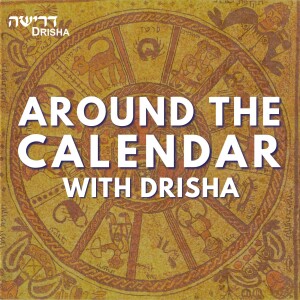Around the Calendar with Drisha
Over the years, Drisha has offered Torah classes on the many observances that mark out the timeline of the Jewish yearly cycle. Around the Calendar brings you all our holiday- and observance-focused classes, from our back catalog of recordings and continuing through our contemporary shiurim and lectures.
Episodes

Thursday Dec 14, 2023
Thursday Dec 14, 2023
In this class, our character of choice is the city of Jerusalem. Rather than studying Megillat Eicha, the classic text of destruction, we instead look at the before and after. We begin with the historical background and context to the fall of Jerusalem in 586 B.C.E., examining the 'Jerusalem myth', the notion that had taken hold over the previous centuries that the city could never fall, and then move to the post-script, studying the midrashic commentary to Eicha, which subverts, undermines, and rewrites the Megilla to replace themes of destruction and despair with ones of comfort and continuity.

Thursday Dec 14, 2023

Thursday Dec 14, 2023

Thursday Dec 14, 2023

Thursday Dec 14, 2023

Thursday Dec 14, 2023

Thursday Dec 14, 2023

Thursday Dec 14, 2023

Thursday Dec 14, 2023

Thursday Dec 14, 2023







